N Sathiya Moorthy with M Kasinathan
Tamil Nadu Chief Minister J Jayalalithaa's efforts seem to be aimed at embarrassing the DMK when it was said to be considering the option of reviving political and electoral ties with the Congress, along with the DMDK, say N Sathiya Moorthy and M Kasinathan.
In losing no time in remitting the Supreme Court-commuted death sentence of three Rajiv Gandhi assassins, Tamil Nadu’s Chief Minister J Jayalalithaa may have sought to turn the political tables on rival Dravida Munnetra Kazhagam and regional outfit the Desiya Murpokku Dravida Kazhagam. The two parties are said to be warming up to the Congress for an alliance in the upcoming Lok Sabha polls.
Sri Lanka-centred ethnic issues are not known to influence election results in Tamil Nadu, barring the 1991 polls held in the midst of the Rajiv Gandhi assassination. However, pan-Tamil parties have nonetheless used it to beat one another with and also the Congress.
The state cabinet’s decision to release the convicts is a clear message that Jayalalithaa will brook no further delays of the kind that forced the Supreme Court to order the commutation of the death sentences in the first place. (However, on Thursday the SC stayed the release of the convicts)
The state also extended the remission facility to four other convicts -- including Nalini, whose mercy petition was admitted very long ago and has been knocking at different doors at different times, for early freedom, parole, etc.
...
Will Cong electorally exploit developments in the case?
Image: Rajiv Gandhi addressing an election rally in Bihar.Photographs: KM Kishan/Reuters N Sathiya Moorthy with M Kasinathan
Jayalalithaa's decision came a day after the Supreme Court commuted the death sentences of the three convicts. Earlier in the day, DMK leader M Karunanidhi had appealed for the release of the convicts. Jayalalithaa, however, took a dig at Karunanidhi in the assembly saying that the government headed by him had rejected the mercy petition of another accused, Perarivalan, made to the governor in 2000.
Jayalalithaa’s efforts seem to be aimed at embarrassing the DMK when it was said to be considering the option of reviving the snapped ties with the Congress, along with the DMDK, whose actor-politician leader, Vijaykanth, who too has taken a near-similar line like the state’s mainline political parties on all ‘ethno-linguistic issues’.
With the urban middle-class voters, particularly women, not exactly fancying the events and developments on the Rajiv Gandhi assassination front in recent days, it is unclear if the Congress would want to try and electorally exploit it without a ‘strong alliance’ in the state.
...
Has the state government jumped the gun?
Image: Congress president Sonia Gandhi with DMK supremo M KarunanidhiN Sathiya Moorthy with M Kasinathan
There are some who question if the state government jumped the procedural gun in the matter. While commuting the death sentence of the three, citing the 11-year-long delay in their execution, the three-judge bench of the Supreme Court headed by Chief Justice P Sathasivam observed that the right to remit their converted lifer further to grant them freedom rested exclusively with the state government.
In doing so, the court referred to Sections 432 and 433 of the Criminal Procedure Code, which also laid down the procedure for the state government to consider and order any remission.
Accordingly, the state government, based on a petition by/for those serving lifers, can set up an ‘advisory board’ to study individual cases and recommend if it was a fit case for full/partial remission.
The alternative would be for the jail superintendent to move the state government for setting up an advisory board if the convict had spent 14 years in prison. The state government would then pass an order, based on the recommendations of the advisory board, which might have gone into the overall behaviour of the convict(s) in the prison, and other mitigating circumstances.
The contradictions in the state government’s stand stood out when the chief minister declared in the assembly that the seven prisoners would be freed after three days, whether or not the Centre responded. However, no explanation was sought from the floor, nor any given, why her government now, like those preceding hers -- and alternatively headed by her and the party -- did not consider such remission earlier for the other four, whose death penalty had been reduced to one of life imprisonment by the Supreme Court in 1999.
...
Review petition may have to be rushed in SC
N Sathiya Moorthy with M Kasinathan
With Chief Justice Sathasivam about to reach the age of superannuation in two months, any review petition (against the commutation) will have to be heard by the same bench that had heard the original case. If that precedent had to be followed, the Supreme Court may have to rush through the review petition, if and when the Centre moved one.
In this case, however, media reports have indicated that family members of some of the civilians killed in the blast that killed Rajiv, too have decided to move a ‘review petition’ on their own. Among them is Javed Iqbal, the son of an IPS officer, T K S Mohammed Iqbal, who too died in the blast.
However, at this late stage, the Supreme Court would not want to entertain any petition seeking permission for individuals to implead in what otherwise might be a clear-cut case where only the Union of India may have a locus standi.
In context, but not wholly fitting into the circumstances of the ‘commutation case’, it may be recalled that the Supreme Court had taken a tough stand when the ageing father of a police officer killed by slain forest brigand Veerappan’s gang in neighbouring Karnataka had sought lowering of the sentence in the 1990s. Whether that measure would be applicable to the present case, where the issue is not about commutation or liberty per se, based on facts and circumstances alone, but is wholly based on the avoidable and unjustifiable delays in the Centre/President deciding on the ‘mercy petitions’ of the convicts.
...
A complete U-turn by the state government
Image: Assassin Dhanu interacts with then prime minister Rajiv Gandhi at Sriperumbudur just before setting off the explosive attached to her body, in this file photograph from May 21, 1991.N Sathiya Moorthy with M Kasinathan
Recently the state government challenged Nalini’s plea for one-month parole to spend time with her father on the ground that it could create a law and order problem. Possibly alluding to the upcoming parliamentary elections, the government said that several political persons might like to meet Nalini during her visit to Ambalavanapuram, the village where her father was staying with her brother, and which is surrounded by thick forests. There is (thus) a likelihood of untoward incidents, the prison authorities said in their counter-affidavit.
A week or so later, the state government has changed its stance and decided on absolute freedom for Nalini and the other three former death-row convicts, including her Sri Lankan husband, Murugan -- and also set a three-day deadline for the Centre to act on it!
Interestingly, the Madras high court, on two earlier occasions, had dismissed Nalini’s pleas for liberty. Condemned to death by the Supreme Court along with the other three, Nalini got a reprieve in the form of commutation ordered by the governor of Tamil Nadu. It was reportedly made possible at the instance of Sonia Gandhi, widow of the slain leader, who wrote to the state governor, that Nalini was a woman with an infant girl to take care of. The child, in her teens now, is now living with father Murugan’s relatives, overseas, after the Centre denied relevant documents, either for citizenship or for travel.
When Nalini moved the Madras high court, seeking premature release under the general amnesty scheme announced by the state government, a division bench comprising Justices Elipe Dharma Rao and K K Sasidharan, in 2010, observed that she had committed “a crime which was cunning in conception, meticulous in plans and wreck-less in execution” and so “cannot seek premature release as a right, though she does have the right to seek consideration of her plea”.
Earlier, in 2008, the high court had rejected Nalini's plea for release on the ground that her case was investigated by CBI under Section 435 of CrPC. Nalini had filed her appeal contending that the state governor had powers under Article 161 of the Constitution, without reference to the Centre. The court rejected the plea.
In doing so, the court observed that the nature of offence also played a major role in considering a case of premature release, and said that Nalini could not claim equality with other life-convicts.
N Sathiya Moorthy, a veteran journalist and political analyst, is director, Chennai chapter of the Observer Research Foundation.

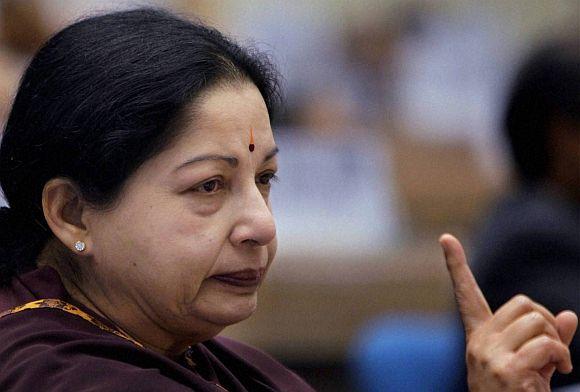
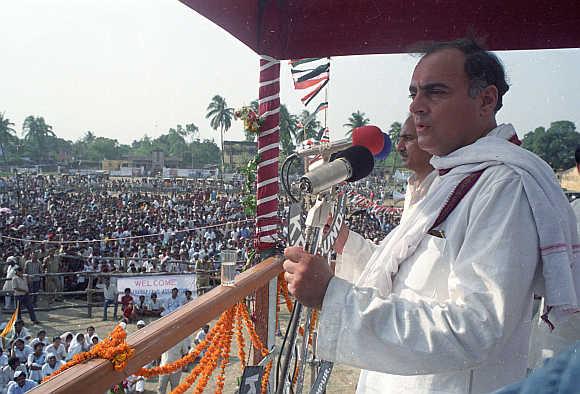
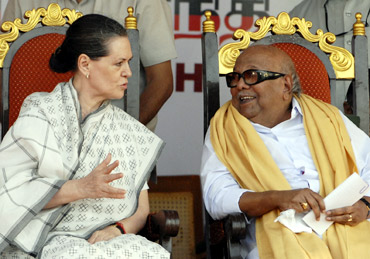
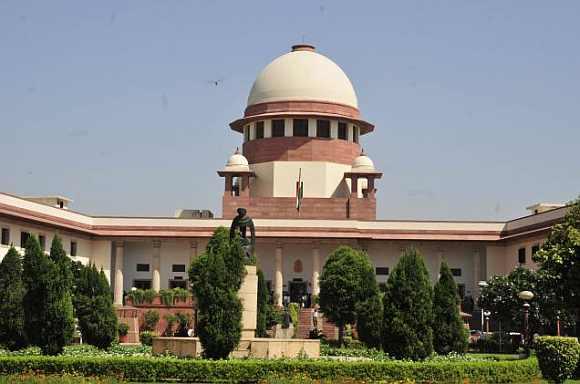
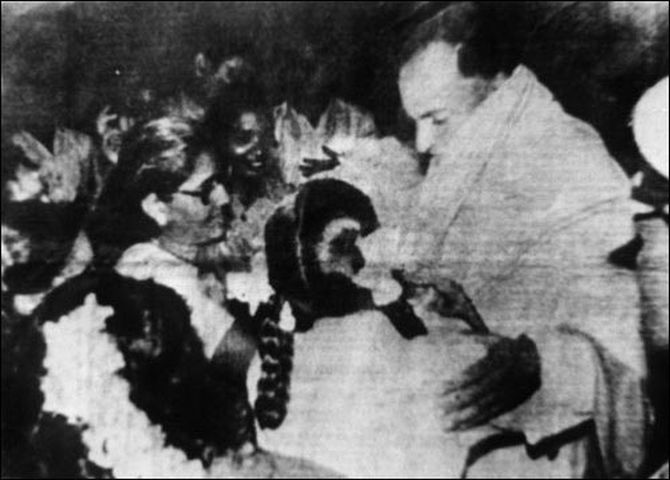
article